All along I've wanted the freedom to go a bit  I'm having a lot of fun right now plotting out the details of The Far Beyond, the second book in the trilogy. The overarching story is all planned out, of course; I have the climactic scene of the third book so scripted in my mind that when I think about it, it plays in front of me like a movie... a big, bad, over-the-top effects movie like a cross between Star Wars and Lord of the Rings. :) I have the big scene in The Far Beyond laid out too, but a fair bit of how we get there remains open--and that's a good thing. Until the writing started, I have to admit I was a little afraid that The Far Beyond might be a disappointment to some readers. It probably will be the shortest volume of the trilogy, but even so, I was afraid the content might be a little thin. For one thing, while The Just Beyond rides along on grand science and philosophical themes and Beyond All Else is going to be a full blast cosmic spectacle, The Far Beyond's story is highly personal. Michael isn't out to save the world or figure out why the universe seems to be going crazy around him--he's just looking for his brother. He'll have plenty of surprises, and the TFB narrative is critical to what happens in the last book, but it's very focused and at first, I thought, ran the risk of feeling a little subdued. No more. What's come to me in the past couple of weeks is an outline that steals some of the thunder from Beyond All Else to make the second book more adventurous and complelling. And that's really exciting for me, because my greatest joy in these last two books is the opportunity to paint on a blank canvas. All along I've wanted the freedom to go a bit Alice-In-Wonderland, and now, instead of putting that off to Book Three, I've found a way to get to it sooner. Book One of course was largely set in the mortal realm, and while plenty of wild stuff goes on it all had to be reconciled with what readers know and perceive about the tangible world. In the second and third books I get to make up whatever I want--the only limitation is that it be consistent with what was revealed about the Afterlife in The Just Beyond. As it turns out, that only scratched the surface... and now the second book is going to present much more of the Afterlife's underbelly and its context in the divine battle than I originally thought. I can hardly wait to get into it. :) Which I'd better go do. The new PC is mostly set up now and I'd really like to finish writing TFB sometime this summer. It's not a stretch, the book will definitely be shorter than the first one (for one thing the publisher thinks the TJB manuscript was too long) and I learned a lot over the course of last year about how to write fast and efficiently. I also want to have some substance to post about and publicize to build an audience for the second book once the first one is published and (hopefully) people beyond just my family and friends are reading and getting excited about it. The one thing I'm not sure about is how much of the plot to reveal. My small readers group is going to get the whole thing, of course, receiving each chapter as it comes out for comment and critique, but I don't dare reveal the whole thing or even any plot spoilers on the Internet. I'll figure it out, though. I've found this novel-writing thing is teeming with unexpected delights to discover along the way, and it's best just to smile and let them happen. :) - Mark
1 Comment
My new PC arrived yesterday, just in time to transition before the old one coughs up its last breath. I'll be spending the next several days getting programs loaded and settings optimized so my posting is likely to be sparse. Unless I get ambushed by inspiration and feel like I just have to throw something up here, of course. :) Should be back in stride by Wednesday or Thursday. If anything happens on the book, such as receiving the cover art, I'll put that up immediately for sure. Thanks for your patience. - Mark
James was right. It belonged in a prologue; every other option was worse. 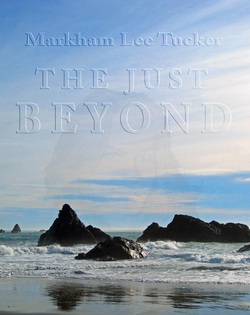 I dislike prologues. I don't read them. My rationale is that prologues are a symptom of lazy or inefficient writing. Prologues mainly provide background for the main story--but it's the main story, not the background, that made me buy the book. Whatever is in the prologue, my thinking goes, should have been in the main story if it was all that important. If it's not, it shouldn't be in the book at all. And so I invariably skip prologues, starting my read at Chapter 1 with blithe confidence that I'm not missing anything I need to see. So how did a prologue worm its way into The Just Beyond? From the mouths of babes. My son James and I were lucky enough to visit Hawaii last spring. It was a refreshing, exhilerating "just the boys" trip and his first to the islands. I was chipping away at the science fiction segment of the book at the time, the middle chapters where Michael learns an amazing secret from his physics professor friend Dan. My son was reading the manuscript on his laptop and let me know, in no uncertain terms, that the profile of Michael's relationship with Vicki was too low key. I needed to rachet it up, he said, and early on in the story. As early as possible. It should be established, he declared, in a prologue. I dismissed his suggestion and articulated the view I've recounted above. James was unmoved. Prologues are exactly for this, he insisted. There are too many flashbacks in the book already. More importantly, the relationship with Vicki was vital. It couldn't wait to be "worked in." I had to lead with it. And if I wasn't willing to compromise the first chapter--which I wasn't, because I considered the kickoff with the apparition in the apartment to be a critical hook--a prologue was the only alternative. I told him no, I told him I had other plans, I told him he couldn't really know what would and wouldn't work from reading only a third of the story. Still, his adamance nagged me. I had recently come to a similar conclusion about Vicki--I realized her profile so far was too low, that the relationship and her death were key elements deserving of prominence. I had indeed planned to "work it in" later in the book--where exactly I hadn't decided, but it would come to me. I'd worry about it when I'd hit the part of the book that called out "it's time." I felt I was getting to that point, and so I gave it some thought. And the more I thought, the less satisfied I became with my options. My son was right, there already was more than enough flashback in the novel--another technique I disdain in principle--and I was hesitant to flesh out Vicki that way. I didn't want to interrupt the story to do it, either--things were moving along at a clip, with the road section over and the story kicking into action gear. Where to put the Vicki background to do the least harm? What to sacrifice? And in the end--after two weeks of soul-searching, the Hawaii trip and the immediacy of his advice in the past--I slowly but resolutely settled on the answer. James was right. It belonged in a prologue; every other option was worse. And as I started writing, gripped with determination to make sure mine wasn't one of those prologues, the kind I detest... the inspiration consumed me. What lay on the page when I was done was some of what I consider the best writing in the entire book. It doesn't invalidate my general view of the device. For one thing, my objection to prologues isn't absolute; I hate them in direct proportion to their length, and will even read a prologue that runs only a page or two. Mine went less than three pages, close enough to make me comfortable. And I did my best to charge it with vivid emotional imagery delivering critical information. I wound up content enough to include it in the "partials" (a limited number of pages or chapters requested by a publisher in order to determine whether they want to see the whole manuscript) without thinking my chances of sale would be injured by planting these few lines in front of my blockbuster first page. It would be comforting to say I learned something from this, but I'm not that mature. :) It didn't obliterate my objection to prologues in general and it didn't convince me--though it probably should have--that I need to listen to others more, even those young enough to be my son. :) At least I had the sense to come around to a great idea that wasn't mine. The book is much better for it. Thank you, James. :) - Mark They say "write what you know", a challenge when you're young and don't really know anything. 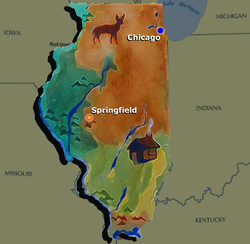 I've mentioned before that The Just Beyond is not my first novel. It will be my first published novel, but I began this quest years ago, at age 20. In fact TJB is not even my second book. A couple of years ago I wrote a nonfiction work about how each of the U.S. states got their names (this image is my wife's painting of Illinois for that book). It didn't sell to a publisher, but it was a project I had envisioned for some time and it was important that I do it. TJB isn't my first published work, either. After the novel I sold two short sci-fi pieces to small magazines, and I could have sold another one to a major men's magazine had I not refused their request to "enhance" it with gratuitous sex. At that point I stopped writing. Life with children and a taxing job became too demanding and exhausting to support the effort it takes to write and market. But I always knew I could. Which brings me back to that first novel, The Judges of Beta Librae. It was a science fiction story about a dark ages civilization that discovers a stunning secret: it ibegan as a transplant from a dying Earth to a new planet, and has by design been made to forget its heritage. Even at the time I wasn't sure it was very good. In retrospect I can see that the problem was not the writing but the lack of life experience. I was a young husband and a new father by the time the book was finished, yet I struggled with the mild references to sex and the complex dynamics of relationships. I know there are and always have been young writers who manage to pull off works of brilliance and maturity beyond their years, but I was never going to be one of them. I was only capable of stick-figure characters and a largely cliche plot. Only one person, my grandfather, ever read the thing. His comment was that it wasn't any worse than much of what was on the sci-fi racks. I recognized this as a backhanded compliment, though it may not have been intended that way, but I chose to view it as a glass half full and an indication that I could write commercially viable material. But writing a good book wasn't the most important point. The important thing was finishing. I only submitted to six publishers, largely because of the cost of printing and shipping 400+ pages, and probably more so from discouragement. But I had finished a 400 page book, and that alone provided a confidence and strength that served me over and over in life. I have a somewhat fanatical obsession with being exceptional, and here was physical proof: I'd stuck with it for three years, one writing and two editing, and completing the book elevated me from the crowd of quitters. That tangible proof that I could do it assured me that I could do it again. And that knowledge was golden. The Just Beyond is a much, much stronger work and the main reason is that I've been around the block. I've had some rich, dramatic life-changing experiences (not all of them good) and many are reflected or alluded to in TJB. They say "write what you know", and that's a challenge when you're young and don't really know anything. :) Yet I may never even have attempted it without the assurance completing the first book provided. Even unpublished it was worth many times its intrinsic value. I'll end with this. I never realized before writing this post that the first novel, if you stretch just a little bit, had the same initials as The Just Beyond. Coincidence? I'm really not sure. It's fun to ponder, though. :) - Mark Inquiring minds want to know. Lazy writers won't tell you. 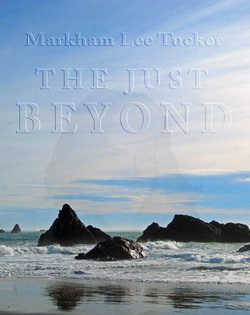 What generated the basic premise in The Just Beyond? Frustration. There has been plenty of fiction about the Afterlife, but it tends to sort into three categories. The first, let's make up a term, is "gothic immortality." These are the vampire and similar works of Anne Rice, Twilight, Underworld, Being Human, and so on. They're hugely popular and definitely entertaining, but they don't really define an Afterlife per se. What they define is states of eternal life, whch is not the same thing. And while they often include a tremendous amount of history and march to a consistent set of "rules", they typically do not elucidate what I consider the most important question: why. Not how they came to be what and where they are; that is universally covered. What's missing is an overarching explanation of why they should exist at all. The second category is what let's call "Earthlike." A prime example is the movie Defending Your Life, where Albert Brooks goes on trial in an environment indistinguishable from the mortal world and winds up running after a bus bound for Heaven, which itself drives into that same kind of mist as described below. The typical proposition is that the Afterlife only seems grounded in the familiar because the characters aren't able or ready to grasp its reality. They're seeing a metaphor they can understand and not the true environment. That I could almost buy, but what is the reality? Inquiring minds want to know. Lazy writers won't tell you. Last and most prevalent is the "fog of death", a.k.a cheating. :) The Afterlife is barely shown if at all. This lets the writer off the hook from depicting a complex Afterworld or explaning why it is as it is. Dead characters disappear into mist, fade out, or simply vanish, giving little or no glimpse of what lies beyond. Daniel Radcliffe does this in the last Harry Potter movie and his later The Woman In Black. (By the way, watch the 1989 original of that movie if you want to experience the prickliest feeling you've ever had at the back of your neck .) There are at least two reasons for this. First, to define the Afterlife in rich and specific detail, writers run the almost guaranteed risk of alienating or offending potential readers who consider their own vision of life after death to be inviolate. Second, working out the details of a selt-consistent Afterlife is hard. What exactly is required to get in? Do people sleep, eat, or have sex? If so, why? What other things do they do? Eternity is a very long time. How long would you be content to do nothing but flit about in the clouds on angel wings visiting departed family and friends - a year? 10 years? 100? A million? A billion? How long would it take to pursue your every aspiration, and once you're finished, what would you do then? These questions are left begging in most Afterlife fiction, but they can be answered. It just takes courage: the willingness to develop a coherent image and then bear the bitter assault of a multitude of offended detractors. Richard Matheson's What Dreams May Come gives a complete, consistent, and rational explanation (as will the Beyond Trilogy by the end; the first book has only cracked open the topic), and I respect it immensely. None of its critics, when you weigh them objectively, have a vision as logical or robust. The Afterlife in The Just Beyond overlaps some of Matheson's picture, though not so much that originality is lost. I wish there were more like it. I don't believe that Matheson's concept or mine literally reflect reality, but they might. Isn't it a good thing to have such possibilites afloat in the marketplace of ideas? - Mark I was dazed and listless for two days after I wrote the airplane escape scene 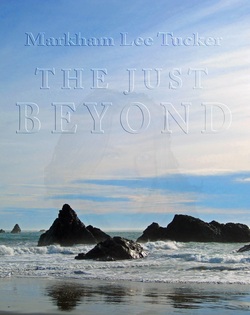 "No tears in the writer, no tears in the reader." When I first ran across this gem of advice, a lightbulb went on. I had never thought of it before. But it's sooo true. If the author isn't as genuinely engaged with the characters and story as he expects the reader to be, the falsity will show. How dare we expect readers to swoon over a book the author views with detachment? Moreover, we mustn't forget that publishers and agents are readers too, and they're even more likely to spot and reject a book on the basis of insincerity. That quote gave me license to write not just a technically sound novel, but an emotionally personal one. And I did. It's partly because many of the book's vignettes are based on events in my real life, but even more because I so took the protagonist to heart. I'm not equating myself with Michael Chandler--I could never do many of the things he does--but I related to him deeply. Michael is like the uber-me, the person I would want to be in an ideal world. My "tears in the writer" were literal. I was dazed and listless for two days after I wrote the airplane escape scene. I was so choked up I couldn't even write. After a couple of days though I realized that the cure was not to suspend writing, but to continue. I had to get Michael to a better Place. Even now, four months after completion, I still cry when I read certain parts. Of course, I cry at the dance scene in the movie Napoleon Dynamite, so maybe that's not saying much. But at least it's heartfelt and real. And there have been tears in the readers, too. Several participants in my readers group as the book was being written told me they cried over certain parts. Nothing relating to the book has thrilled me as much as that. My greatest hope for The Just Beyond is that it will engage, uplift, and inspire people. The proof will come in the comments readers make when it's released, but I'm gratified with the above indications that I have lived up to that standard. :) - Mark 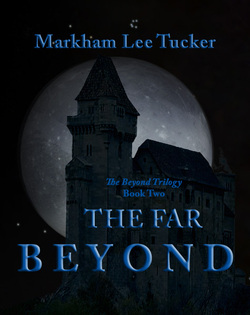 I woke up this morning to two wonderful, completely unexpected surprises. Yes, a "surprise" is by definition unexpected, but these were two baubles of happenstance whose possibility had never even entered my mind. First was the realization that during the night, my computer had spontaneously rebooted. Let me explain. For the past four weeks I have left my PC running without a break. This has more to do with the publication of The Just Beyond than anything else. Since early last summer my machine has been dropping indications of impending death; I won't go into details but after a good deal of investigation and diagnosis, the conclusion I eventually reached was that the motherboard was limping along to persuade me to replace it before it expired. The problem manifested itself most often as freezing on reboot, and when the latest in my series of amateurish workarounds crashed in early December, I finally got the message. I got in touch with a local mom-and-pop computer business, the best of only a handful in Brookings, and put a new custom-built rig on order. (That machine is supposed to be done this week--was supposed to be delivered yesterday, in fact, but delay and slippage in service level seems to be endemic here and we've learned to live with it. When we first moved in our gas fireplace, the only source of heat in the house, would not come on. It took four technician visits over six months to get it fixed, leaving us without the device till the end of winter. We bought plug-in space heaters to get by and installed a Mitsubishi heat pump, which now serves admirably both for heat and precious air conditioning in the spring and summer. So on balance it was probably a good thing.) :) Leaving the PC on eventually created a serious dilemma. I do consulting work, and one of the critical applications for that glitched and locked me out. The only solution was to reboot, which I dared not do for fear it wouldn't restart at all. The work app was important, but what I really couldn't risk was missing an email from the publisher or losing my book documents. I backed up the manuscript, of course, but after dedicating a year's worth of time, travail, and emotion thanklessly grinding it out, you get nervous. :) This morning my PC desktop looked odd--recent icons out of place and a message saying the network drive connection had failed. These were clear signs that the rig had rebooted on its own sometime during the night. Hopefully, I tried to open the locked application--and it worked! This is a huge pressure lifted as the lack of access was bound to cause me real problems very soon. That was a great relief, but an even more significant boon also occurred. I woke up with a searing passion to write the sequel, The Far Beyond. Yes, it was already underway, but in fits and starts. There was much content I hadn't resolved in my head, and I had written and then discarded a number of openings. I couldn't seem to establish a visceral connection to the book. My muse was hiding. She's back with a vengeance. I woke up feeling fiercely invested in the story and the characters. You have to write it, my soul seemed to say. You can't leave them (the characters) dangling. The clouds parted and I could see clearly how I should proceed. So off I go! Is there a message here? Probably not, but if there is one, it would be to never give in to despair. Serendipity happens--more often in real life than in fiction, which is saying something. Expect the best, or at least don't resolve yourself to the notion that it's impossble. I believe your mental state has a lot to do with success or failure--both positive and negative perspectives can produce a corresponding self-fulfilling prophesy. From here on, mine will be positive for The Far Beyond. And it's guaranteed to make the book better. - Mark If I had given three months of exclusivity to every publisher I approached with The Just Beyond, it would have taken 12 years. 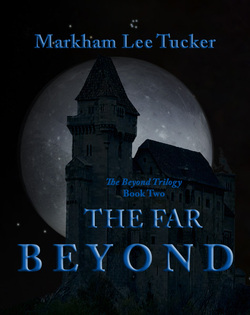 Everyone has asked themselves this question at one time or another. Here's what I learned in writing The Just Beyond. Some writers relish the experience of writing in itself, and these people have a leg up on getting published. If you write largely for the pleasure, you're not likely to abandon a book half done or to stop writing in the face of rejection. If you're in that rarefied category, you can stop reading this now. I wish I had that kind of constitution. I don't. I fall in with the majority of prospective authors who would relate to the statement: "I hate writing, but I love having written." This post is aimed at them. The most important thing is stamina. It's fun to plan out a prospective book (if you even do that) and the writing is a kick at first. After a couple of chapters however (if you even get that far), you'll inevitably hit a wall of writer's block, loss of interest, or fatigue. If you can't plow through that, not just once but repeatedly over the long haul, it would be better not to have started. This is far and away the most common cause of project abandonment. Most people just can't sustain the gruelling focus for as long as it takes to finish. Second, you need something distinctive to say--a compelling, well thought out, and original idea. Don't just assume you have one--do your research. Look into books already out there in your genre and be prepared to articulate how yours is, if not better, at least distinctive. Publishers want to know why people would buy your book if it's already been done. At one point while writing The Just Beyond I was mortified to realize it had a good deal in common with Richard Matheson's iconic What Dreams May Come. I had only seen the movie--one of my favorites--and in desperation I got my hands on the book itself to determine exactly how and to what extent mine might seem derivative. Upon inspection I was able to establish, to my own satisfaction at least, that the overlap was low grade. The type of story was completely different, my vision of the Afterlife wasn't as similar as I had feared, and the climax and overall impact of the two books were miles apart. The strongest tie was a general validation of love and the human spirit, and that fell well short of neutralizing The Just Beyond's originality. Finally, you need commitment. Writing reigns supreme among the arts in terms of deferred gratification. It takes six months to a year to write a standard length novel, and that's just the beginning of the process. Seeking an agent or publisher is a molasses-slow drudgery. Most agents want nothing to do with new writers, and publishers typically take several months to a year to get to your query letter. It's much worse if you respect some publishers' prohibition against simultaneous submissions (sending your proposal to several publishers at the same time). I don't--I think it's paranoid, unrealistic, and ridiculously unfair. Do they really expect us to wait out their sluggish review processes one at a time? If I had given three months of exclusivity to every publisher I approached with The Just Beyond, it would have taken 12 years. Yet even with simultaneous submissions, working to sell a book is thankless, soul-wounding tedium. Unless you happen to win the manuscript lottery--you're more likely to be struck by lightning while riding a unicycle on the back of a unicorn--you will get rejections. Lots of them. I wrote my first novel years ago, a science fiction story called The Judges of Beta Librae, and after six rejections I abandoned it out of discouragement. As a result I'll never know whether it might have sold had I been properly tenacious. If you remain unfazed by all of the above, the answer to the question is...YES. By all means, get started on that book today! I wish you every success, and if you're able to overcome all of these daunting obstacles, you deserve it. - Mark you can't name a topic that doesn't have a devoted subculture With The Just Beyond in a holding pattern while the editor and cover artist do their work, a few posts not quite on topic may sneak their way in here. Which is a servicable segue into today's offering.
The great thing about blogging is that anyone can do it. The trouble with blogging is that anyone can do it. It's not surprising that every nobody, his brother, his cat, his goldfish, and his niece's Barbie doll are cranking out blogs. What is amazing is that people read them. Referring to the legion of prospective memoirists ("I should write a book!!")--which pretty much includes the entire human population--Kurt Vonnegut said something to the effect that your life story isn't half as fascinating to other people as you think it is. I'll restrain myself from digressing into the obvious tie-ins of that statement to dating and just say that his observation seems self-evident. On the face of it you'd think that principle would naturally extend to one's opinions, arguably even more tedious and grating than most life stories. And yet, the blogosphere is rife with otherwise ordinary individuals that have collected vast followings of daily readers. What gives? Well, for one thing, with due respect to Mr. Vonnegut who certainly was not wrong in a general sense, with the explosion of global communication it turns out there ARE some people who are utterly fascinated by...well...fill in the blank. It appears you can't name a topic that doesn't have a devoted subculture, and while in any given region their percentage of the population may be small, when you multiply by the number of regions across the face of the Earth, all of a sudden the numbers are meaningful. And this is actually pretty cool. It gives the blogger an outlet of expression and a sense that somebody cares about what they think, and it gives readers reassurance that they're not alone in the world with their interests and quirks. While I may have no use whatsoever for 9,999 out of 10,000 blogs, that remaining one may be my sole and precious tie to the community of the like-minded. It doesn't matter that each such community comprises only an infinitessimal slice of humanity overall. What matters is that its constituents found each other. Before the Internet's cheap, fast, and easy access to instant worldwide publication, this was impossible. It represents nothing less than a fundamental shift in the human condition, and its implications will only be fully appreciable through the hindsight of decades. Only a handful of people care enough about my little book project to monitor these half-baked writings. Even after it's published and even if it does reasonably well, the numbers won't impress in the context of a population of 7 billion souls. Nothing has universal appeal: I've often speculated that if the Beatles somehow rose from the half-dead and put on a free concert with unlimited seating, only a thin fraction of the population would go. But it's neat that there's a way for me to stay in daily contact with my modest group of Beyond supporters. It gives me constant incentive to deliver a level of quality as I craft this trilogy that will be worthy of their encouragement and support. -Mark (P.S. There actually is a Beatles Reunion concert that plays a significant role in The Just Beyond. There, I managed a pitiful tie-in to the book. lol - mt) shameless marketing just comes with the territory It goes against my grain to be doing all this rabid promotion of The Just Beyond. I'm sure a lot of people are sick of seeing it, especially with the book not even out yet. It pains me even more to know how narcissistic it makes me look.
Yet it has to be done. I think most artists would rather just work their craft and leave marketing to someone else--or no one else. But like all arts, the publishing world is ferociously competitive. It's hard for a new writer to establish a toehold even if their book gets published. So if you want to develop into an author who can make a living from book sales alone, you have do everything possible to cultivate a presence. It's not just smart and necessary business--the publishers demand it. I was a bit surprised to find that all publishers who requested the full manuscript in response to my query letter required a marketing plan as part of the package. But that's where the industry is today. I've been hoping, planning, and working all my life to see if I could establish a creative career. This means a lot to me--really, it's the only lifelong asipiration I haven't yet fulfilled. So I'm heavily invested in the success of this book. And shameless marketing just comes with the territory. Utlimately, it's about walking my own talk. I've always told my kids to judge themselves not by what others say but by their own efforts. The true measure of a person is not what they actually accomplish--which inevitably involves an element of luck--but what they do with the circumstances that are within their control. Even the story of Michael Chandler can be viewed as an illustration (albeit hyperbolic) of this point. And so I promote. Blog, blog, blog, FB post, FB post, email, Tweet, repeat. Because in the end, whether The Just Beyond sinks or swims, I need to be able to look myself in the mirror and know I gave it my best shot. That if the novel fails, it's not because I didn't do my part. It's sometimes hard to take comfort in that alone--but in a practical sense, it's all you can do. I don't always live up to my own expectations...but I never stop trying. - Mark |
Once upon
|
| The Just Beyond |
|
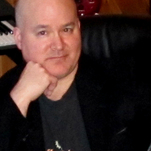
 RSS Feed
RSS Feed
